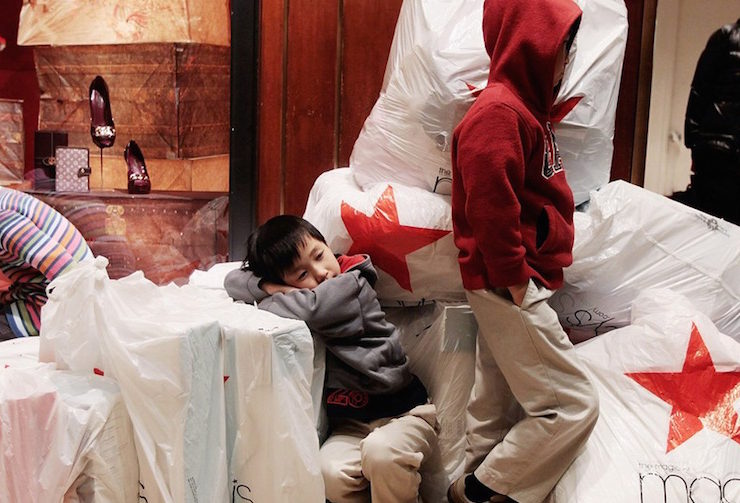Love Is All We Need
My mother recently lost her father. He was 90, frail in mind and body and by all accounts, probably ready to go. In the end, he didn’t suffer. He died peacefully surrounded by people who loved him.
In the days preceding my grandpa’s death, the hospice nurse called my mom and suggested that she say goodbye to her dad over the phone as no one was sure if he would last the hours needed for her to reach his hospital bed. She was caught off guard. She knew he was sick and that he “had started down a path,” as the nurse had gently put it, but she hadn’t thought about what she wanted the last words she’d ever say to her father to be. He had been slipping in and out of consciousness, mostly out, but before my mom could react, the nurse had put the phone to his ear. It was now or never.
Perhaps it was better that she didn’t have hours or even minutes to toil over these words. The pressure of the last words ever would have been crushing. But in the abrupt moment she was faced with, she simply told him she loved him and that it was OK for him to go. She told him she’d miss him. And she told him she loved him again.
In a perfect world, we would all make sure that we say how we feel while we still have time. But we don’t live in a perfect world. And we don’t always do the things we should — even when we know we should.
After the call, my mom worried that maybe she should have said more. She wondered if she should have said all those things we don’t say in the course of normal conversation: final absolutions, forgiveness for all the ways — little and big — that we’ve hurt each other over the years, thanks for the sacrifices, gratitude for loving us, reassurance that we’ll be OK without them. These are not things we say when we talk to our parents. We talk about the weather. The kids. The job. The house. The traffic. The game. The damn politicians. We don’t talk about goodbye. We don’t talk about the last words ever.
If the rightful order of the universe holds true, then most of us will outlive our parents. We grow up believing this. Our parents hope and pray for this. So why is there a question of things left unsaid at all? In a perfect world, we would all make sure that we say how we feel while we still have time. But we don’t live in a perfect world. And we don’t always do the things we should — even when we know we should.
I guess we don’t do this because it’s hard. It’s hard and awkward and uncomfortable for most of us to even think about the end, let alone dredge up all those feelings we’ve had throughout our lives toward our parents. There are just so many of them, and they’re not all warm and fuzzy.
But I think the ones that matter are. I think the components of the last conversation ever ought to be as warm and fuzzy as our selective memories will allow. We should use that last conversation for expressions of gratitude. For reassurances that even though they might not have been perfect, we know they did the best they could. For appreciation. For kindness. For love. For forgiveness. For approval and acceptance. For permission to go on. And most of all for love.
Maybe what we need is a code. Like, when I call my mom to talk about my air conditioner that needs replacing, what I’m really saying is, “Thank you for all the ways you’ve been there for me.” Or when my dad complains about how expensive his medication is getting, what he really means is, “You’ve been a good daughter.” Maybe if we could do that, there would be no need for last conversations ever because everything we need to say would be said over and over, buried in the mundane details of our lives.
So on that note, I’ll end my more-maudlin-than-most post with a simple message to all of my lovely readers out there: I need to clean the lint out of my dryer vent.*
*Code for: “Thanks for reading. I appreciate you taking the time.”





